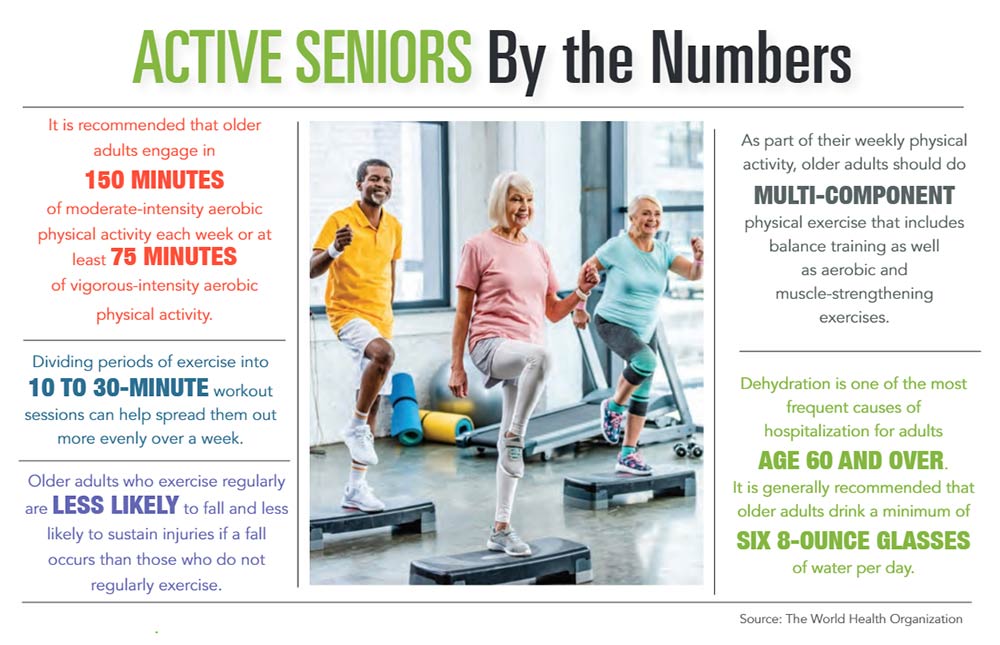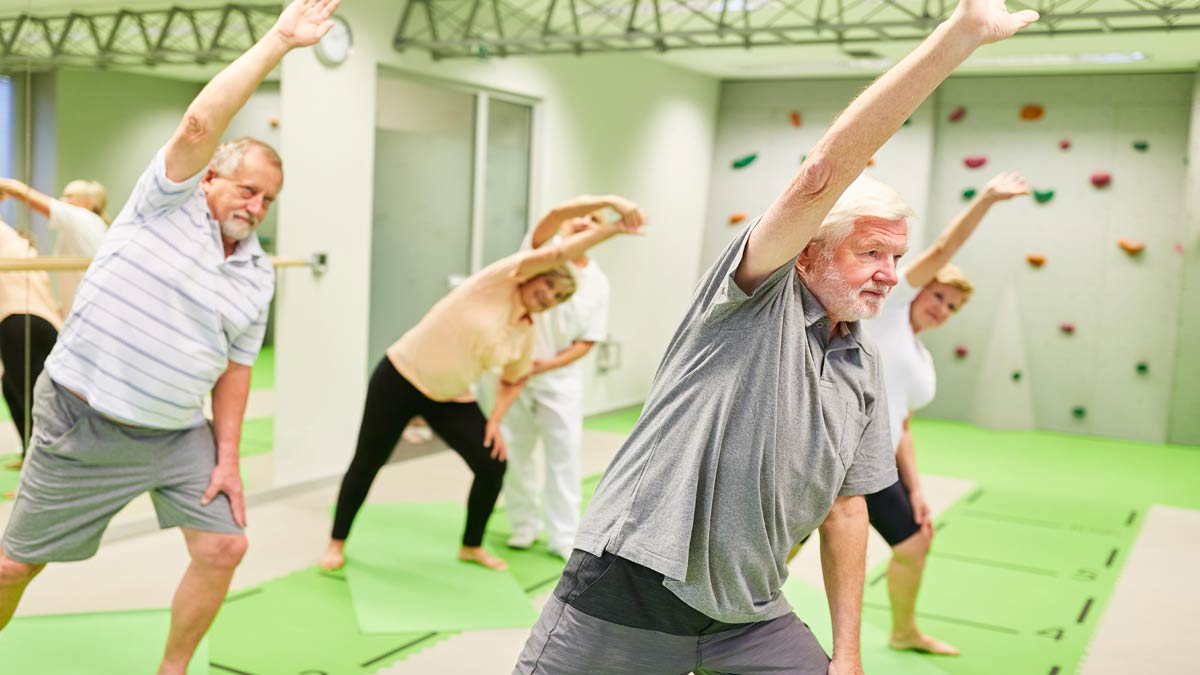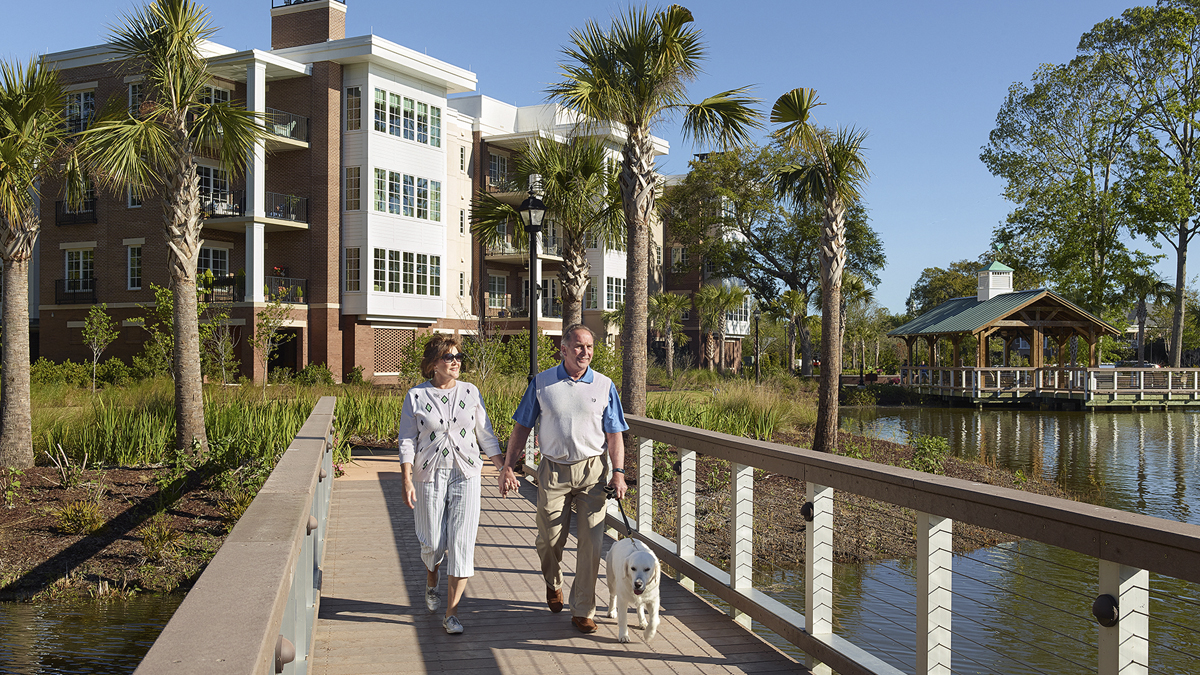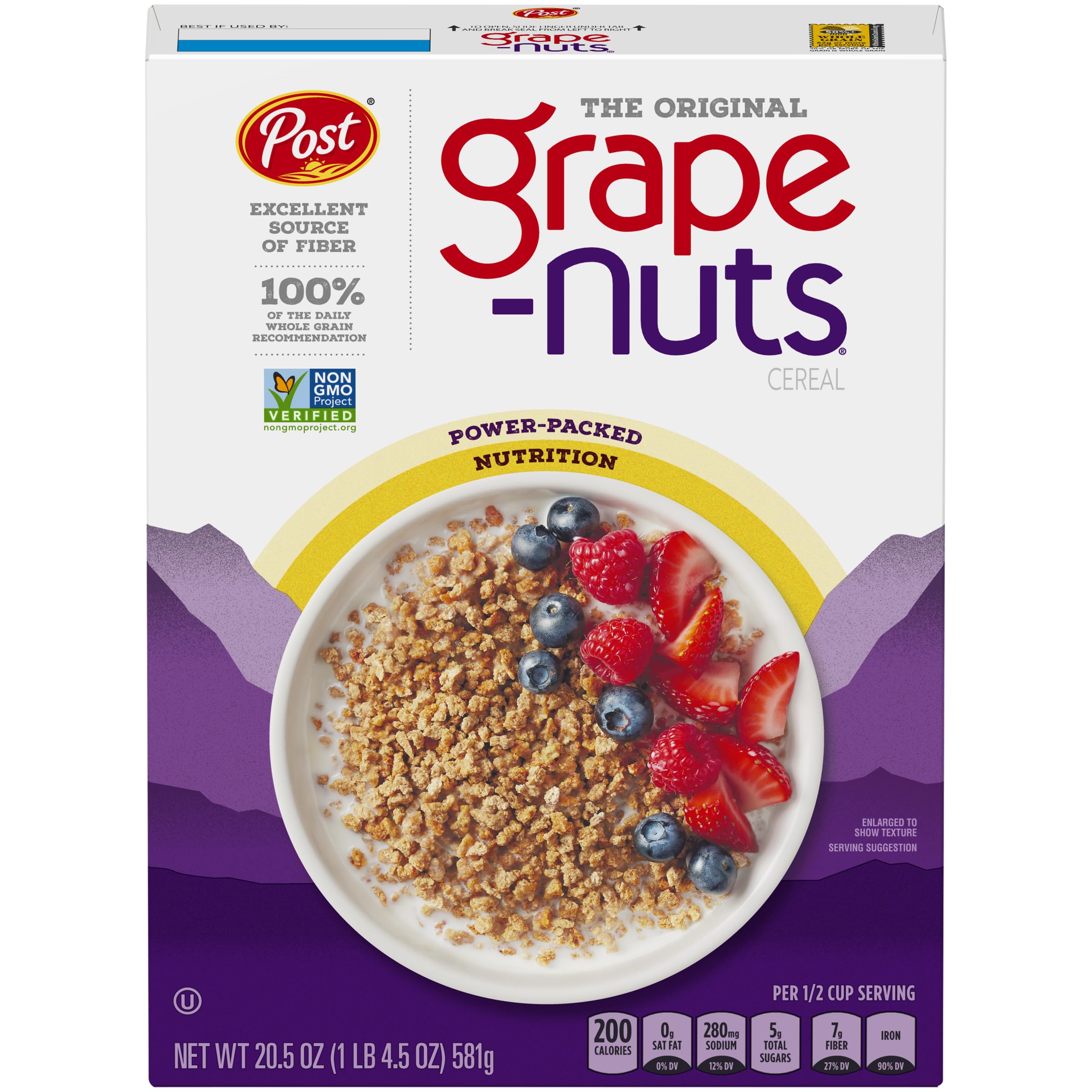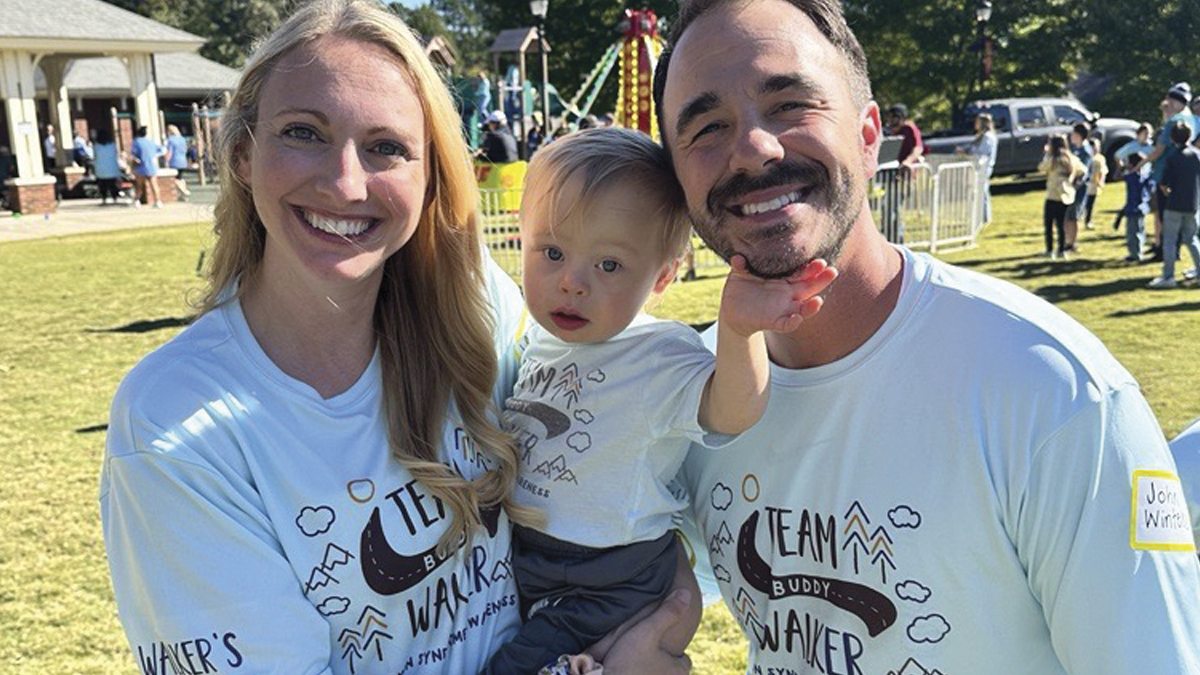A popular quote asserts: “Age is an issue of mind over matter. If you don’t mind, it doesn’t matter.” But is that really true? After all, everyone ages differently, and lifestyles play a significant factor.You have probably seen YouTube videos or read stories about some 85-year-old phenom triathlete or marathon runner who seems to defy the aging process. How do they stay so fit and healthy when by all logic their body should be breaking down?
JT Threlkeld, a sports director and personal trainer at Greenville’s Doctor for Life, said when it comes to seniors — or anyone for that matter — the key to maintaining a high level of fitness is developing a consistent pattern and routine of stretching, daily workouts and nutrition.
He emphasized that staying properly hydrated and fueled is critical.
“I think it’s a combination of consistency across the board,” Threlkeld stated.
He would advise anyone looking to stay physically active into old age to remember that rest, hydration and healthy eating comprise about 99% of health and wellness. Eating and drinking improperly will often lead to bad fitness results.
Being prepared is another vital component. Doctor for Life is a medical practice and weight loss clinic that tailors individualized patient-centered programs that help its clients establish a sustainable lifestyle supporting “long-term health and quality of life.”
When physical trainers at Doctor for Life meet with seniors or any other client, they discuss their various ailments and injuries and examine what their activity level has been for the past few months.
Threlkeld sees too many people who approach fitness and nutrition with an “all or nothing or nothing at all” attitude. That’s why they create individual plans to address any problem areas and find a well-balanced program that works for that person.
“Customization of workouts, especially for senior citizens, is a must,” noted Threlkeld.
A well-balanced fitness and nutrition regimen can also have the ancillary benefits of boosting self-esteem and improving our ability to overcome obstacles, added Threlkeld, a major plus for maintaining good mental health as we age.
As Threlkeld pointed out, it is easy to make excuses to skip the gym. Whether you are a teenager or a senior citizen, you must foster a mind-set of commitment.
“It’s a lifestyle. It’s not just a fad,” he said.
Charleston resident Jeanne Nelson, 94, has committed to making physical activity a part of her lifestyle. Nelson, who lives in West Ashley, has been working out regularly at the Medical University of South Carolina for 40 years. She volunteers with the MUSC Wellness Center’s seniors program where, participants engage in a variety of coordination, stretching and strength exercises while holding onto a chair for balance.
The routine entails arm and leg stretches, bending to the floor, rotating the hips –“doing the hula” as Nelson quipped – and feet and ankle stretches, among others.
Nelson, who contracted polio at age 18, has continued to persevere and maintain her fitness regimen into her 90s.
“I don’t give up. I still do everything I can,” she said. “It’s important to be independent.”
For Nelson, that includes driving – short trips to the mall or the grocery store – washing her car and working in her yard on occasion as well. She even assists other friends who aren’t faring as well physically.
“I’m one of the ones who takes things to people who need them,” proclaimed Nelson.
It would seem then that the benefits outweigh the risks associated with physical activity in older people. Threlkeld commented that there are risks involved in any fitness program; the important thing is to start at your level and work your way up gradually.
“We see injuries when people do too much too quickly,” remarked Threlkeld, pointing out that physical activity, even strenuous exercise in seniors, is recommended as long as it is done “safely and effectively.”
“It’s never too late to start. Your body can adapt to it,” he added.
The World Health Organization agrees, citing studies and evidence showing that older adults who are physically active have lower rates of heart disease, diabetes, cancer and high blood pressure than those who are more sedentary.
Nelson offered this advice for other seniors who want to keep fit into their golden years: “Don’t sit in that chair. Get up and do something. Stay active. Keep those legs moving.”
By Colin McCandless
